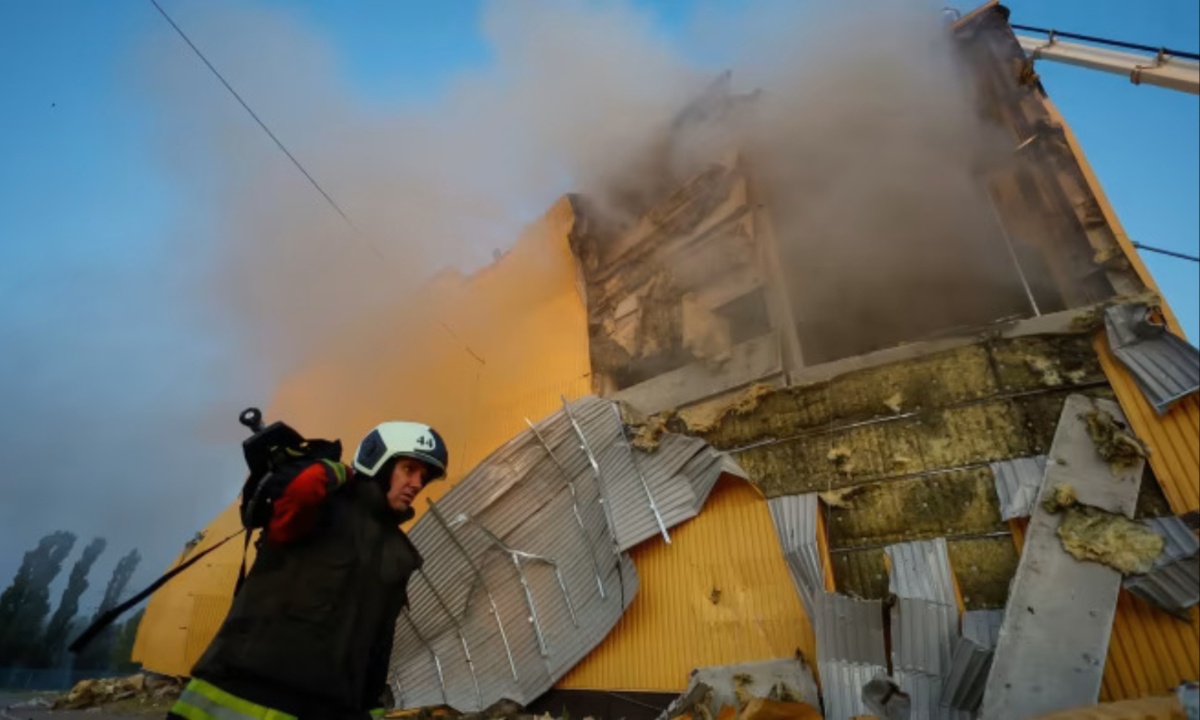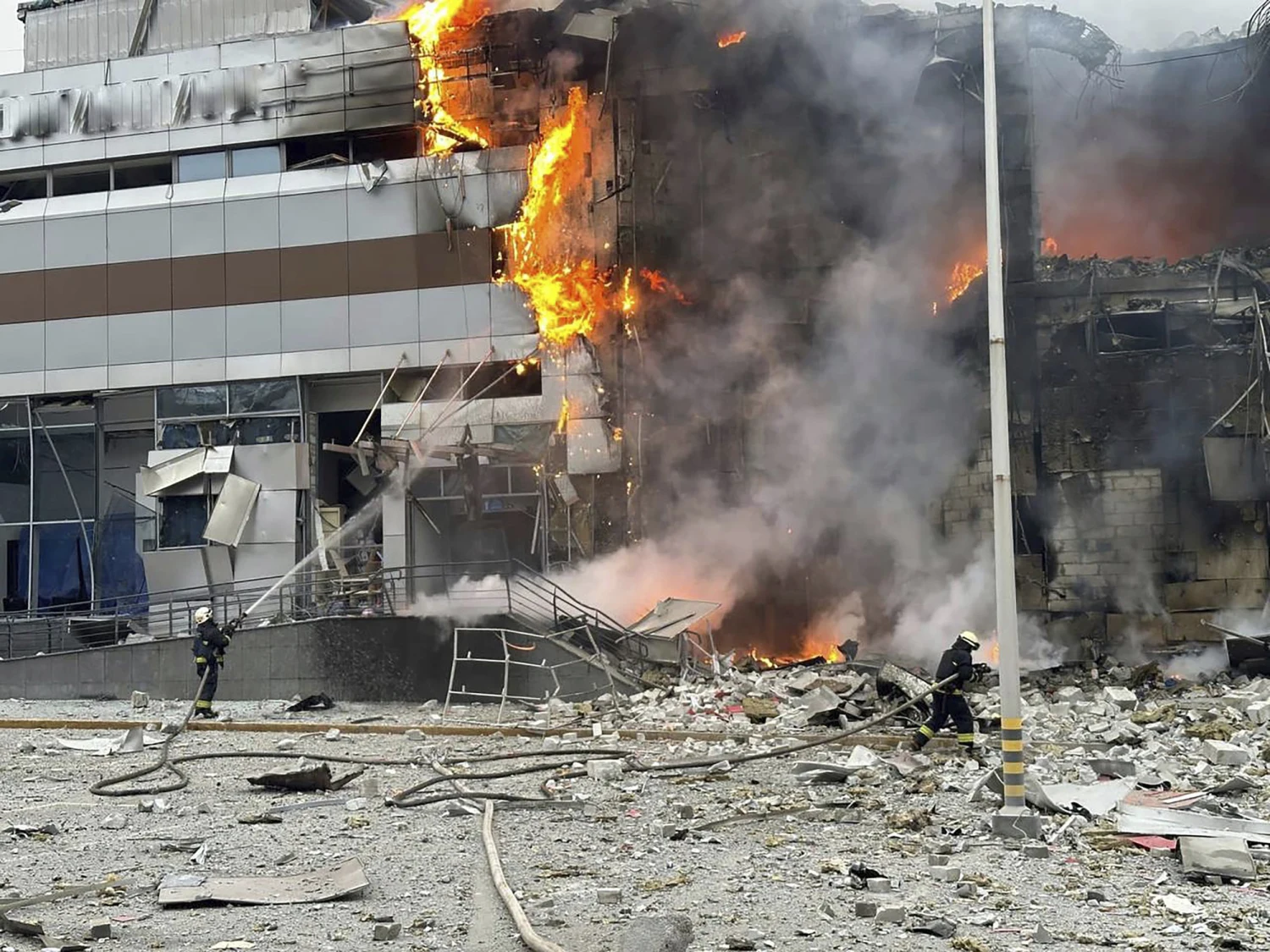Russia launched a massive overnight drone and missile attack on Kyiv as Ukrainian children were returning to school after summer vacation. The assault caused significant damage across the capital, leading to the cancellation of classes in some schools. Debris from intercepted missiles and drones fell throughout Kyiv, injuring three people and damaging several buildings, including two kindergartens. The attack reflects the ongoing intensity of the conflict, with both sides continuing their military campaigns despite the prolonged war.
In the broader conflict, both Russia and Ukraine are engaged in aggressive ground offensives. Ukraine has been advancing into Russia’s Kursk region, while Russian forces continue to push deeper into the Donetsk region, a key area in the Donbas. Russian President Vladimir Putin dismissed Ukraine’s actions in Kursk, asserting that they would not hinder Russia’s progress in the Donbas. He predicted that Ukraine’s offensive would fail and suggested that Kyiv would eventually seek peace talks.
Ukrainian President Volodymyr Zelenskyy provided an update on the situation, acknowledging that while the Kursk operation had successfully drawn Russian troops away from southern Ukraine, it had not yet achieved its goal of diverting Russian forces from the eastern frontlines. Zelenskyy emphasized that the Donbas remains a primary target for Russia, with its most capable brigades concentrated in the area. He reiterated that Ukraine’s goal in Kursk is to create a buffer zone to prevent future attacks from Russia.

Russia Launches Massive Drone and Missile Attack on Kyiv as Ukrainian Schools Reopen
The scale of the attack on Kyiv was significant, with Russia launching a total of 35 missiles and 26 Shahed drones across Ukraine. Ukrainian air defenses were able to intercept many of these threats, but the attack still caused widespread disruption and fear among residents. The first day of school, typically marked by ceremonies and traditions, was overshadowed by the destruction, with some schools damaged and families forced into bomb shelters during the assault.
Amid the ongoing conflict, international support for Ukraine continues. Dutch Prime Minister Dick Schoof visited Ukraine, pledging 200 million euros to help repair and protect the country’s electricity infrastructure, which has been a frequent target of Russian attacks.
Schoof also reaffirmed the Netherlands’ commitment to providing F-16 fighter jets and munitions to Ukraine. His visit highlighted the continued challenges faced by Ukrainian civilians, including the impact of the conflict on everyday life and the urgent need for international assistance.











































